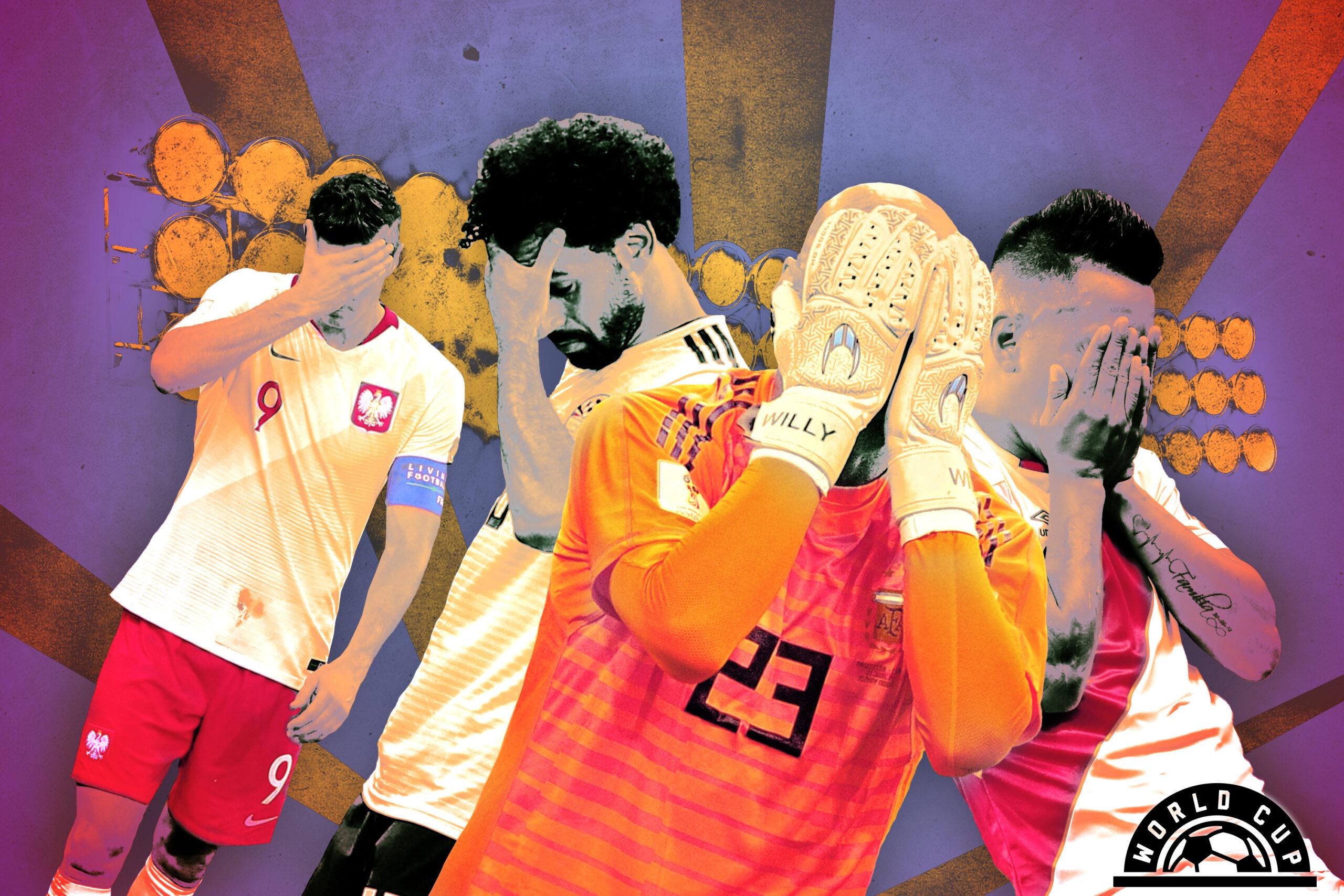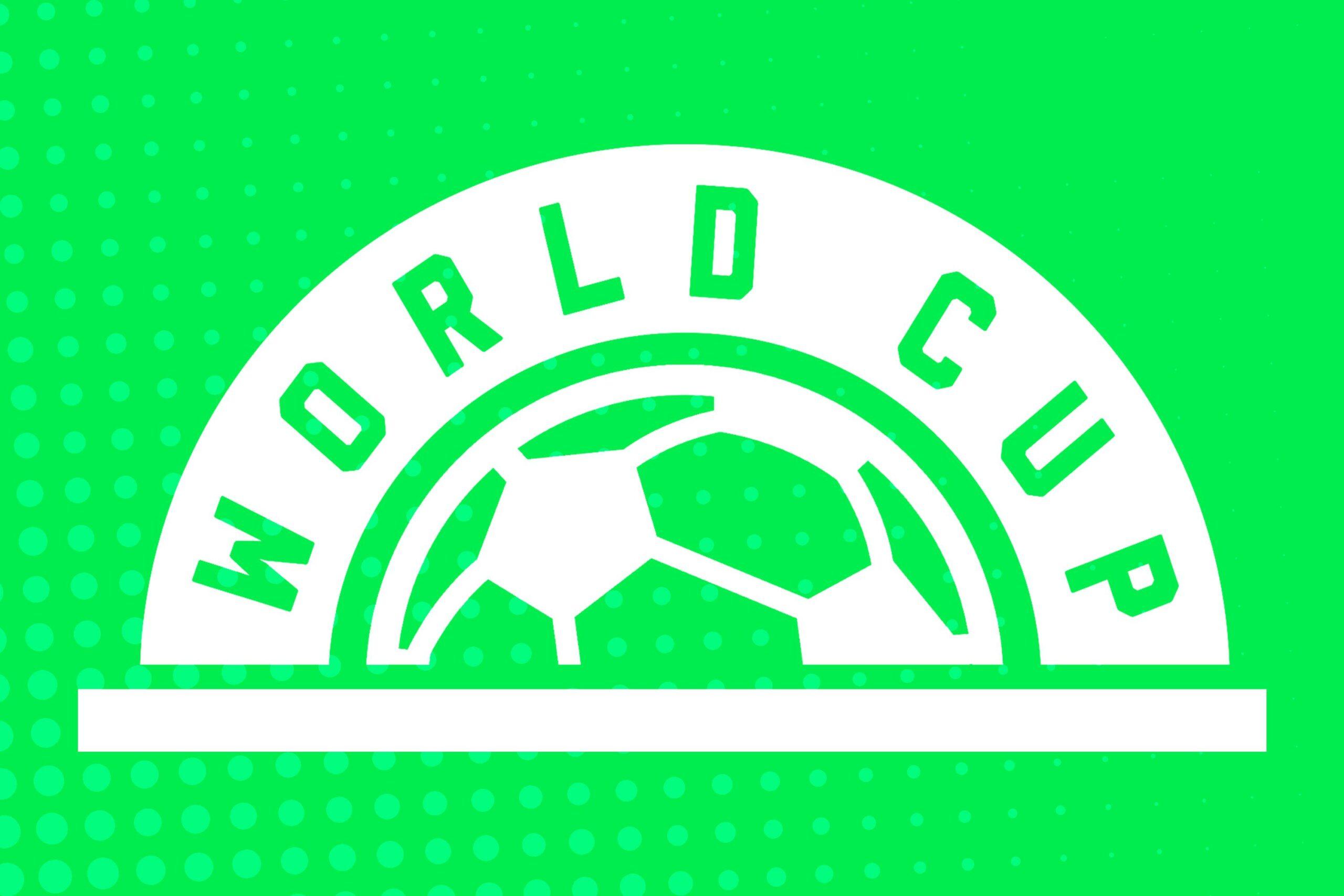
The World Cup is a deceptively tricky tournament to predict. Even as it showcases the game’s greatest players on an international stage (with apologies to poor Christian Pulisic), the window to make a lasting impression is aggravatingly short: At most, a team will play seven games in the tournament. The majority of club leagues, meanwhile, play upward of 30 matches in a season—and that’s before considering concurrent cup competitions. The brief nature of the World Cup, in other words, is basically an international version of March Madness and all the swirling chaos that entails.
Even a couple of screwups in the three-game group stage can hinder a team’s chances—see: Die Mannschaft playing like spoiled sauerkraut—and inevitably there will be players who are indisputable letdowns for their country (or, in the case of Brazil getting thumped 7-1 in the 2014 semis, everyone not named Neymar). With this year’s group stage now in the books, here are the players who have been the biggest disappointments in terms of both pre-tournament expectations and on-field blunders.
Willy Caballero, Argentina
I feel for the Argentinians. I’m a Chelsea fan, and while Caballero was our backup last season, he saw enough playing time to give pause. For every impressive save, there were a couple of moments when he bumbled around like a matador with uncontrollable diarrhea and let in a goal. He would’ve been Argentina’s backup had Sergio Romero not sustained a knee injury before the tournament.
In Argentina’s first match against Iceland, it was Caballero mishandling what should’ve been an easy parry in the box that gave Alfreð Finnbogason a sitter; that game ended in a 1-1 draw. Then, against Croatia, he did this:
A sweeper-keeper, he is not. (Caballero was benched for the team’s final match, against Nigeria.) And if Argentina had failed to escape the group stage, it would’ve been hard not to point the blame at their catastrophic keeper. There’s a very good chance he won’t be starting in goal the rest of the way, but even if he does, the threats to him and his family are abhorrent and uncalled for.
Sami Khedira, Germany
Khedira was one of the anchors of Germany’s dominant 2014 World Cup run (though he did miss the final due to injury). For a team that wanted to counter-press as aggressively as Germany did this year, they needed midfielders to provide support for the otherwise exposed center backs in the event of a counterattack.
Against Mexico … that did not happen. It was a teamwide collapse, but Khedira is a worthy scapegoat. Per Stats Zone, Khedira had zero interceptions and made zero tackles on four attempts in Germany’s 1-0 defeat against El Tri. While he performed better against South Korea (four successful tackles and one interception), the 31-year-old proved ineffective for Die Mannschaft, who could’ve used, say, a speedy, ultratalented winger with a penchant for creating chances who plays for one of the best clubs in the world. Just a thought!
Mats Hummels, Germany
It’s hard to fault Hummels specifically for the collapse against Mexico. He said so himself, blaming Joachim Löw’s tactics for leaving him and fellow center back Jérôme Boateng without enough support on those speedy El Tri counters. Those choice words might’ve factored into Hummels being benched in Germany’s 2-1 win over Sweden, though we’re not here to deduct points for throwing manager shade. However, Hummels failed to deliver when it mattered most.
A Boateng red card in the Sweden win opened the door for Hummels to perform better in a must-win game against South Korea. Instead, he squandered three easy chances at goal, including an 86th-minute header from a perfect cross by the much-maligned Mesut Özil, that could’ve pushed his team to the round of 16. Sorry Hummels, this one’s on you. I appreciate the Twitter mea culpa.
Robert Lewandowski, Poland
Coming into the tournament, FIFA had Poland ranked as the eighth-best country in the world, which, respectfully, is a bit of a stretch. (Elo ratings, a superior metric at grading national teams, had the Polish at 19.) Still, in Group H, which featured Colombia, Senegal, and Japan, Poland still should’ve felt good about their chances to make the round of 16 with Lewandowski at the helm of their attack. The world-class striker netted 16 times in 10 qualification games, the most by a player in European qualifying, which is [extremely analytical voice] the sport’s equivalent of possessing Big Dick Energy if there ever was one.
Unfortunately for Polish fans (and The Ringer’s Lindsay Zoladz), the giant number 9 whose primary objective is bagging goals ended up with a tournament goose egg. Two losses to begin the group stage against Senegal and Colombia sealed Poland’s fate before their matchup with Japan (they won 1-0, but alas, Lewandowski didn’t score). Lewandowski will be 34 by the time the 2022 World Cup rolls around, and the competitive European qualification gantlet means there’s no guarantee that Poland will qualify with Lewandowski no longer in his prime—barring Arkadiusz Milik becoming a Polish messiah in the next four years.
It’s possible that one of this generation’s most fearsome strikers—may we never forget his five goals in nine minutes—will end his international career without having scored in a World Cup. To be fair, neither has Zlatan Ibrahimovic.
Christian Cueva, Peru
Without the United States in the World Cup, I quickly adopted two underdog-lite teams that play inspired, attacking football and aren’t afraid of controlling possession: Peru and Morocco. Morocco were undone by an own goal against Iran, who parked the bus for the majority of the game. Then Peru—despite playing way more attack-oriented soccer than Denmark in their opening matchup—fell 1-0.
Unfortunately, while Peru had myriad chances to score against Denmark—I created new creases in my couch with every missed opportunity—we’ll always look back at Christian Cueva’s shanked first-half penalty—legend has it, the ball hit an orbiting Russian satellite—as the moment that embodied Peru’s disappointing World Cup.
Who knows, if Peru mustered at least a point against the Danes, maybe the Group C script would’ve flipped and my Peruvian sons would still be in contention. I’m not mad, Christian Cueva, I’m just disappointed.
Mo Salah, Egypt
This is more about circumstance than performance; two World Cup goals in two games is nothing to scoff at. But Egypt, who landed in the easiest World Cup group in decades, lost against Uruguay (a game in which Salah did not play while recovering from injury), Russia, and, most disappointingly, Saudi Arabia.
Salah was to Egypt what LeBron James was to this season’s Cleveland Cavaliers: a superstar carrying a heavy (and arguably unfair) burden to create all of the chances for a weaker roster of players. (Egypt is 66th in the Elo ratings.) For the Egyptians to exit the World Cup without a single point stings. Though to really point fingers, I don’t think anyone is willing to forgive Sergio Ramos just yet.
Nikola Kalinic, Croatia
Like a soccer version of Rodney Hood, the Croatian striker refused to enter his team’s opening match against Nigeria as a substitute, and following this brief act of defiance, he was sent home by manager Zlatko Dalic. The AC Milan striker (via a season-long loan from Fiorentina) is already 30; the dismissal could spell the end for his international career, while Croatia will play in the round of 16.
To refuse to enter a match and represent your country on one of sports’ biggest stages is an all-time bad move. Kalinic is far and away the tournament’s most woeful player, by virtue of refusing to even play.


